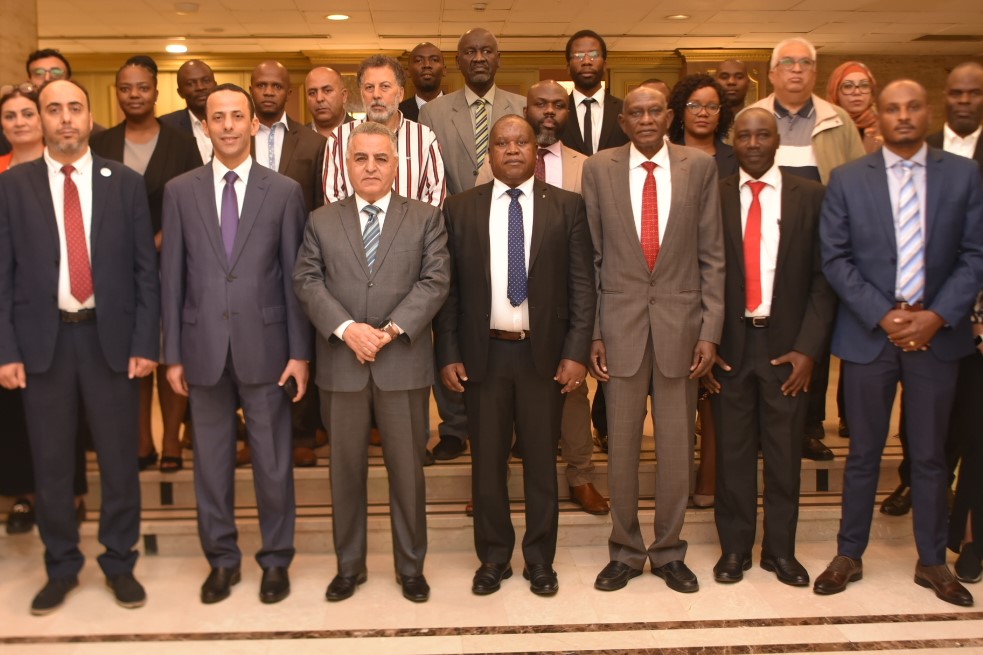
Cairo, Wednesday, May 15, 2024: Thermal power dominates power generation in the COMESA region, accounting for more than 76 percent with hydro energy at 24 percent. This is out of the total installed power generation capacity estimated at 100,000 megawatts.
This was part of the updates presented at the 13th Annual General Meeting (AGM) of the Regional Association of Energy Regulators for Eastern and Southern Africa (RAERESA taking place in Cairo, Egypt on 15 – 16 May 2024.
The overall share of renewable energy has increased from 1 per cent to 6 per cent in the last eight years mainly due to policy and regulatory reforms undertaken in the Member States.
Notwithstanding the improvements, the regional energy infrastructure is critically inadequate due to insufficient investment in the energy sector, unreliability, and inefficiency of existing energy infrastructure, as elaborated by COMESA Assistant Secretary General in charge of programmes, Dr Mohamed Kadah, when he addressed the meeting.
To tackle these challenges, Dr. Kadah urged energy sector stakeholders—governments, multilateral and bilateral development and financial institutions, private sector entities, and academia—to collaborate in financing the energy infrastructure deficit in the COMESA region.
Dr. Kadah highlighted persistent market design issues that hinder the development and efficient operation of the energy sector. These issues include non-cost reflective tariffs and the need to enhance the capacities of regulatory agencies to respond to current challenges. He emphasized the importance of opening the market to private sector participation, especially in renewable energy.
“The energy challenges the region is facing should equally be seen as opportunities for additional power generation on a regional scale and building regional power interconnectors to facilitate trade in power from surplus to deficit countries,” Dr Kadah said.
Dr. Kadah stressed the importance of prioritizing the development of regional energy infrastructure necessary to achieve economies of scale, citing the Zambia-Tanzania-Kenya power interconnector which is under implementation in the region. This project will interconnect the Southern African Power Pool with the Eastern African Power Pool and the realize the Cape to Cairo electricity corridor.
Executive Chairman of the Egyptian Electric Utility and Consumer Protection Regulatory Agency, (EgyptERA), Eng. Dr. Mohamed Musa Omran said effective regulation is a key enabler of an improved business environment for private sector.
“Countries that managed to transition to better equilibria for their electricity sector, are characterized by better regulatory frameworks (including adequate tariff setting, enforcement of penalties, and appropriate energy dispatching rules), lower generation costs, lower theft ratios government subsidies, and investment levels that are large enough to guarantee an electricity supply that is commensurate with peak electricity demand,” Dr Omran emphasized.
Alternate Chairperson of the RAERESA, Dr. John Mutua, who is the Director, Technical Regulation at the Energy and Petroleum Regulatory Authority (EPRA), Kenya stressed the need for harmonized regulatory framework to stimulate investments in power production and transmission especially in solar, wind, geothermal, bioenergy, of which COMESA has expansive potential.
He said, “It has been established that in some countries, the vertically integrated power utilities are carrying out power generation, transmission, distribution, and retail supply functions, while in some countries, the generation, transmission and distribution functions have been unbundled but are still under government control.”
Currently, COMESA is implementing the Regional Harmonization of Regulatory Frameworks and Tools for Improved Electricity Regulation project funded through a $1.5 million grant from the African Development Bank.
Delegates from Burundi, the Democratic Republic of the Congo, Egypt, Ethiopia, Kenya, Madagascar, Malawi, Seychelles, Sudan, Uganda, Zambia, Zimbabwe, Djibouti, Tunisia, and Libya participated in the Annual General Meeting (AGM).
The primary agenda of the meeting was to receive progress reports from the RAERESA Portfolio Committees, which include Harmonization of Legal and Regulatory Frameworks, Renewable Energy, Environment and Energy Efficiency, as well as Capacity Building, Information Exchange, Energy Statistics, and Database Management.
Speeches

